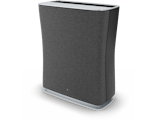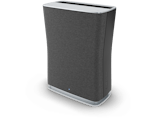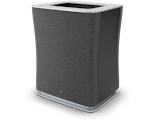
Usha Müller, 31 March 2022
Healthy air for allergy sufferers
10 ways to reduce allergy symptoms
Because we spend more than 90 percent of our time indoors, we need to pay special attention to the quality of our indoor air since it is essential for our well-being and our health – especially where allergy sufferers are concerned. After all, your home should be somewhere you can retreat to and in the bedroom or children’s room in particular, you want nothing more than healthy clean air.
Read our 10 tips for counteracting the symptoms of pollen, house dust mite and animal hair allergies.
Clean, purified air thanks to air purifier and air washer
Even if you clean your home thoroughly on a regular basis, the amount of allergens in the indoor air can often still be too high. So it is worth thinking about using an air purifier which will help to trap unwanted particles and permanently improve the air quality at home or at the office. This type of device can remove not just pollen but also fine dust, animal hair, house dust mite excreta, viruses, bacteria and even unpleasant odours from the air.
Optimum room air humidity of between 40 and 60 percent will ensure that the amount of allergens whizzing around in the air is reduced considerably. The small particles attach themselves to water droplets in the air, making them heavy so that they ultimately fall to the ground. At ground level, they are less able to damage your airways than when they are at head height. They are virtually washed away – like the pollen outside when it rains. And that’s exactly what an air washer does indoors. Being both an air purifier and humidifier at the same time makes this type of device the ideal housemate for allergy sufferers, especially during the dry winter and spring months. Optimal humidity will also help prevent your mucous membranes from drying out. If mucous membranes are kept moist, they are able to provide better protection against allergens as well as viruses and bacteria. For a home you can feel good in and where you can also breathe freely and easily.
If you have questions related to indoor room climate, please get in touch with us. Or subscribe to our newsletter to regularly get informed about current topics regarding indoor climate, experience reports or Stadler Form insights.





